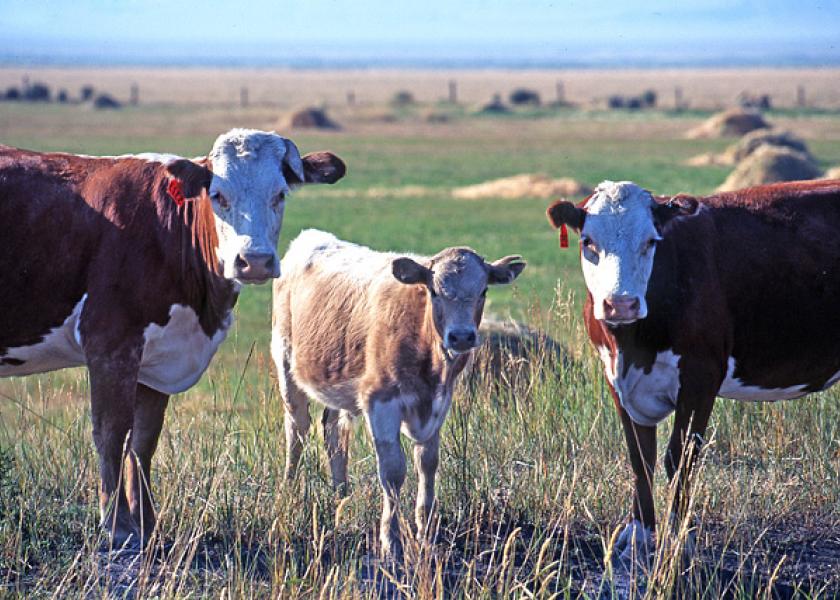Some Cows' Infertility Linked to Y Chromosome

USDA scientists have found that one reason why some beef cows may not be getting pregnant is they have fragments of male Y chromosome in their DNA.
By: Sandra Avant, U.S. Department of Agriculture
One reason why some cows cannot get pregnant may be because they have male (Y) chromosome fragments in their DNA, according to a U.S. Department of Agriculture (USDA) study.
Reproductive efficiency is the most economically important trait in cow-calf production. When a cow does not produce a calf, the producer does not make a profit, but still has to pay for feed, labor and other expenses.
With the help of beef producers, Agricultural Research Service (ARS) geneticist Tara McDaneld and her colleagues at the agency's Roman L. Hruska U.S. Meat Animal Research Center (USMARC) in Clay Center, Neb., examined reproduction data on about 6,400 females from cattle herds in Colorado, Florida, Nebraska and at USMARC. The team, which included molecular biologist John Keele and geneticist Larry Kuehn, then genotyped the animals, using a cost-saving genetic screening method called DNA pooling, which combines DNA from individual animals into a single pool.
Females usually inherit an X chromosome from each parent (XX), while males inherit an X and a Y (XY). In the study, only females were tested. Researchers found fragments of the male Y chromosome only in the pool of DNA from non-pregnant animals. All the results should have been XX among the females, according to McDaneld.
To verify their findings, scientists used an additional test called polymerase chain reaction (PCR), which is an inexpensive and effective means to identify fragments of the Y chromosome. Among animals with low reproductive efficiency, the PCR study showed that 25 percent of those females in the Florida population and 20 percent in the USMARC group had at least one significant chromosome-Y genetic marker. None of the highly reproductive animals had these markers, indicating that females were not getting pregnant because they carried Y chromosome segments.
USMARC scientists are the first to identify the occurrence of chromosome-Y genetic markers in beef cows with reduced reproductive capacity.
Read more about this research in the April 2014 issue of Agricultural Research magazine.
ARS is USDA's principal intramural scientific research agency, and this research supports the USDA priority of promoting international food security.







